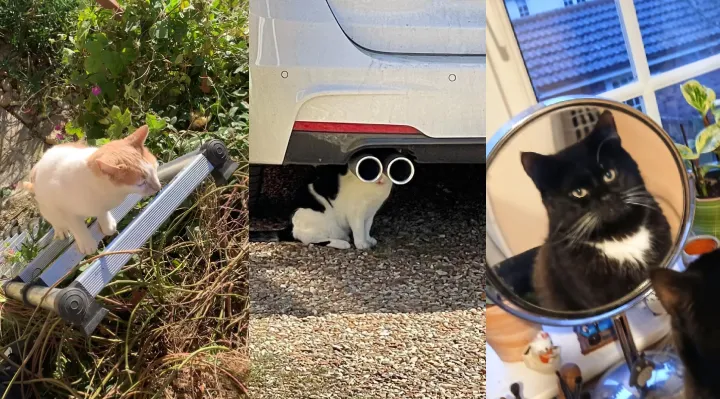Trouble Sleeping? One Week Of Camping Without Electronics Will Fix It
August 29, 2014
This story was originally published by Inside Science News Service.
Throughout most of human history, humans went to bed shortly after the sun went down and woke up in the morning as it rose. There were candles and later oil lamps, but the light was not very bright so people still went to bed early.
Then came Thomas Edison and the incandescent light bulb and everything changed, including our sleeping habits. So, if you have problems getting to sleep at night or are a miserable person to be around in the morning, blame him!
Scientists at the University of Colorado Boulder found that if you live by the sun's schedule, you are more likely to go to bed at least an hour earlier, wake up an hour earlier, and be less groggy, because your internal clock and external reality are more in sync. The sun adjusts your clock to what may be its natural state, undoing the influence of light bulbs.
 Dogs Are Forced To Wear The Things They Steal — And It’s Hilarious
Dogs Are Forced To Wear The Things They Steal — And It’s Hilarious
 Meet Nazgul: The Dog Who Crashed An Olympic Ski Race And Nearly Won
Meet Nazgul: The Dog Who Crashed An Olympic Ski Race And Nearly Won
 People Are Submitting Photos of Their Cats’ ‘Jobs’— And We Can’t Stop Laughing
People Are Submitting Photos of Their Cats’ ‘Jobs’— And We Can’t Stop Laughing
 She Was Feeling Low On Confidence, So Her Classmates Covered Her Desk In Sticky Notes
She Was Feeling Low On Confidence, So Her Classmates Covered Her Desk In Sticky Notes
 A Childhood Bond Reunited: Firefighter Saves The Horse That Taught Him To Ride
A Childhood Bond Reunited: Firefighter Saves The Horse That Taught Him To Ride
 She Collects Trash 5 Days A Week With Her Dog — So A Resident Gifted Her Dog A Matching Vest
She Collects Trash 5 Days A Week With Her Dog — So A Resident Gifted Her Dog A Matching Vest
 Mom Was About To Miss Her Flight, So A Stranger Picked Up Her Kid And Ran With Her
Mom Was About To Miss Her Flight, So A Stranger Picked Up Her Kid And Ran With Her
 She Gave Her Dad The One Thing He’d Been Searching For His Whole Life
She Gave Her Dad The One Thing He’d Been Searching For His Whole Life
 Son Stops Mid Race To Give His Mom A Kiss During The Special Olympics
Son Stops Mid Race To Give His Mom A Kiss During The Special Olympics
 Reporter Asks Eileen Gu 'Do You Think Before You Speak?' — Her Answer Is Going Viral
Reporter Asks Eileen Gu 'Do You Think Before You Speak?' — Her Answer Is Going Viral
 He Went Back To Pay The Man Who Helped Him — But That’s Not What Happened
He Went Back To Pay The Man Who Helped Him — But That’s Not What Happened
